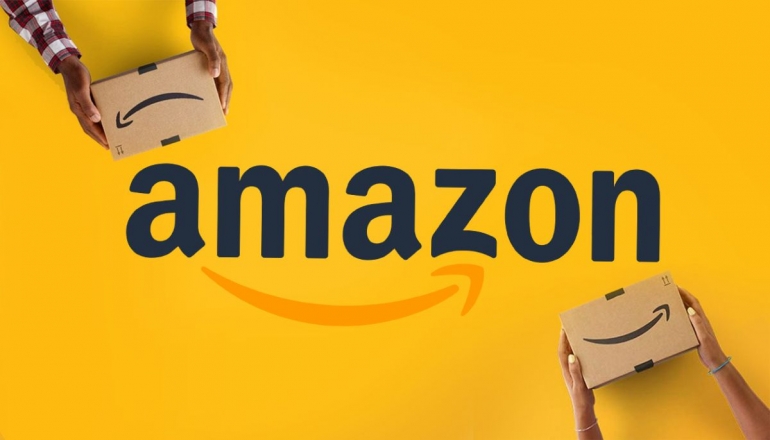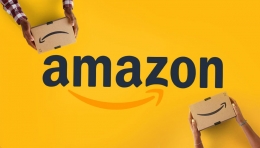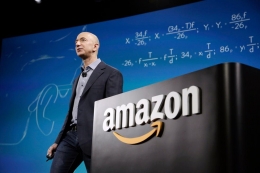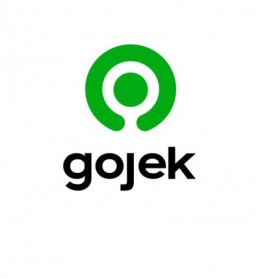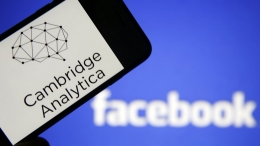What was Amazon Then & Is Now
Amazon was established in 1994 as an online store platform to sell books. Jeff Bezos who is the richest person on the planet is the founder of Amazon. Graduated from Princeton University in 1986, then he worked at several companies such as Fitel, Bankers Trust, and D. E. Shaw & Co.
The last place where Bezos worked had influenced him on how Amazon becomes now. D. E. Shaw & Co is a hedge fund firm which emphasizes on complex mathematical modelling to exploit anomalies in Wallstreet.
Bezo's was tasked in his early work time in the firm to investigate the new-coming phenomenon of WWW (world wide web). The internet: the mother of all networks; the information highways; the remote control to the world; anything that people call upon it.
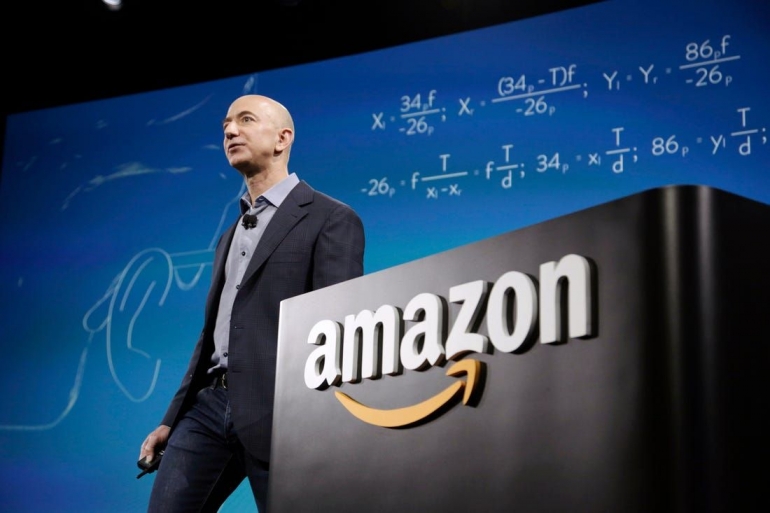
Amazon is not only an online bookstore. Beyond of that, it collected the data of their users. All of user behavior is tracked and recorded, even the move of the cursor. It could be seen what user is seeing, scrolling, pausing, putting in the basket while they're surfing on the site. Amazon than would have enormous data of books market that no other physical bookstore ever had.
Amazon bookstore was just the beginning. The data driven company has transformed itself by becoming today's world's largest online retailer following other businesses in cloud computing, digital streaming, and AI (artificial intelligence).
Do you know that Netflix, LinkedIn, Facebook, BBC, ESPN, NASA are using Amazon web services?
Gojek Has Everything to Monopolize the Market
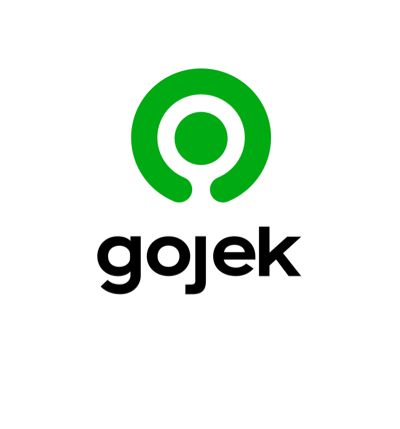
At the early embarkment of disruptive economy, I ever wrote (can be read here) that this disruptive economy can be seen as the sharing economy. Since it does not only disrupt the traditional or conventional market, but also denotes the notion of sharing.
The example of that is in the practice of online ride-hailing apps. Anybody can be online taxi driver even though s/he doesn't have a car rent company nor registered as the employee.
The sharing economy seemingly gives the trail to empower the economy and the distribution of the wealth. But I was totally wrong.
Back to Amazon, the online bookstore by having customer data started to push harder to the book publisher whose books are sold in the platform. Amazon wanted their sales percentage. If they don't comply, the purchase button would disappear or even their book list.
Wait a second here. Does it seem like a monopoly? The power to manage the market.
If you do remember, how many ride hailing apps appear in Indonesia? There were Uber, Grab, Gojek, Blu-Jek, Lady-Jek, JegerTaksi, and many more. But how many that still exists today?
Today is the rise of logistics industry. Influenced by the tech, now we're seeing a lot of logistics & package delivery companies like JNE, J&T, Wahana, LionParcell, Tiki, SAP, and a lot more. But in 10-15 years to come, how many of them that can be survived and still exist?
In Amazon, the idea of monopoly is prohibited to use. The term of market share is replaced by "market segment share." They don't want to be seen as bluntly and brutally monopolize the market at the verbal level at least. But the conduct shows the different direction.
If you open Gojek, you won't only see the menu or buttons to order bike or taxi car. It's more than that. Gojek apps is not only to hail a cab, it's also payment apps, delivery apps, healthcare apps (which you can buy medicines, consult with doctors, and so on), banking apps, and many more.
Can you imagine how big the data acquired by Gojek from that various of businesses? Your preference of apple over mango matters in every aspect of the business. What is told to you is to make customer decision better, but what happens is to manage customer decision.
If Gojek is willing to partner-up with a party in Indonesia to win the governorate election, it will have a high chance that the candidate would win. Gojek has the unprecedented biggest data profiling of the customers for political use.
Along with its growth, Gojek is expanding their business by buying the stock of BlueBird, acquiring Promogo (an advertisement company), creating logistics company (PT. Jaya Ekspress Transindo/JX), investing in Halodoc (medical apps), and a lot more activities to seize the opportunity (read: market).
Data Protection Laws in Indonesia

Mark Zuckerberg has a vision to make the world more connected. Too bad your connection with your crush doesn't have commercial value. This makes Facebook from social media apps turned into profiling their users so that the relevant ads can go in.
Not only that, the Facebook user information can be traded to the third party apps. From the big data scandal of Cambridge Analytica, Mark had to explain and testify before the senate in April 2018. This signaled the importance of data protection law in online platform.
Europe already has data protection law called GDPR (The General Data Protection Regulation). The citizen of EU will be guaranteed that their data won't be used without their consent. The company violating this rule will have potential fine up to 4% of their annual turnover. Pretty damn huge, right.
The Regulation of The Minister of Communication and Informatics Number 20 Year of 2016 has initiated the good will of the government in data protection. However, data protection needs higher level of regulation.
In the 2nd week of November 2020, The House of Commission is planned to conclude the bill of Data Protection whose draft had been assessed by the ministry since 2014. Several principles are adopted from the GDPR on a number of key areas: data collection, data processing, data security, data breach, and the individual right to have their personal data erased.
Be A Smart User
Pandemic period becomes more and more digitized. All schools from elementary to post-doctoral schools serve as increasingly digital than ever. All seminars, talks, business meeting happen in online platform.
The data taken in that platform is very large and the the same time valuable. Do we know if Zoom is storing the visual and audio data during webinar? Do they have our consent to do that? Or are we conscious when giving the consent to them to do so?
Sometimes T&Cs are designed very long that they can sneak the consent without us knowing it. It needs us to more alerted to the T&Cs when using the platform.
Follow Instagram @kompasianacom juga Tiktok @kompasiana biar nggak ketinggalan event seru komunitas dan tips dapat cuan dari Kompasiana. Baca juga cerita inspiratif langsung dari smartphone kamu dengan bergabung di WhatsApp Channel Kompasiana di SINI




